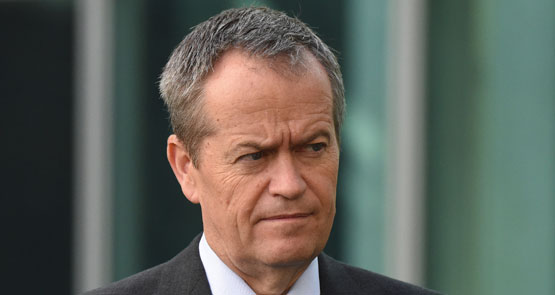
As a federal election looks certain for July 2, the Queensland branches of the big parties had an instructive opportunity to run their campaign operations around the track on Saturday, courtesy of the state’s local government elections.
The results were pleasantly surprising for the conservatives, both encouraging and frustrating for the Greens, and very sobering for Labor.
Council election day is a particularly big deal in Queensland mostly on account of Brisbane City Council, which has no peer in Australia either in terms of its million-strong population or the scope of its responsibilities, which have historically included public transport and water services.
What’s more, the elections are highly partisan affairs in which the major parties battle over two distinct prizes in the lord mayoralty and control of the 26-member city council.
Although Labor had a very high mountain to climb after the debacle it suffered at the last local election in 2012, it appeared to have a lot going for it heading into Saturday’s election.
The “it’s time” factor ought to have loomed large, since the lord mayoralty has been in conservative hands since the unexpected victory of a young-ish Campbell Newman in 2004. The incumbent, Graham Quirk, succeeded Newman when he made his run for state politics in early 2011, won election in his own right a year later, and this weekend sought an advance on the five years he had already served.
The Liberal National Party’s campaign also failed to go according to plan, with the final week derailed by accusations a council ward candidate had sent sexually explicit images to a teenage boy from a Catholic school at which he served as a minister.
Two published polls — one from Galaxy, one from ReachTEL — appeared to confirm the widely held expectation of a tight race.
However, it quickly became apparent on Saturday night — through social media, rather than a malfunctioning Electoral Commission of Queensland website — that the swing to Labor had fallen well short of what was advertised.
At the close of counting last night, Quirk was on 59% of the two-party preferred vote, which was 6% and 7% higher than had been attributed to him in the two polls.
Labor candidate Rod Harding can at least point to a swing in his party’s favour of around 9%, but this was coming off a miserably low base in 2012, when voters seized a second opportunity to wield the baseball bat they had used against Labor at the state election a few weeks previously.
Bad as the result for the lord mayoralty may have been for Labor, there were even fewer excuses at council ward level, where the party actually managed to go backwards from 2012.
As well as failing to dislodge the LNP from any of its existing 18 wards, Labor was unable to defend its own marginal ward of Northgate.
It is also possible that another of Labor’s seven existing wards, The Gabba, will deliver a rare victory to the Queensland Greens.
Owing to the absence of a state upper house and a modest statewide support base that makes life tough at federal elections, the Greens’ record of electoral success in Queensland is pretty much limited to Larissa Waters’ Senate victory in 2010.
So there was considerable excitement among Greens on Saturday evening when their candidate pulled ahead of Labor in The Gabba, which covers a southern inner-city area that largely corresponds with the party’s likeliest state election prospect, South Brisbane.
However, yesterday’s counting of postal votes went heavily against the Greens, and the result is currently up in the air.
Should the Greens hang on, Labor will have only five seats out of 26 on the council, and it will need a second swing on the cusp of double digits to be in the hunt in 2020, by which time the conservative grip on city hall will have run for 16 years.
Queensland’s weekend festival of democracy did not end with Brisbane — as well as council elections across the length of the state, there was also a referendum to determine whether the state would move from its old-fashioned regime of three-year terms to a sleek and modern fixed four-year model that would schedule future elections for the last Saturday of every fourth October.
As electoral law maven Graeme Orr explained in Crikey last week, the “yes” case had across-the-board support from the state’s political, media, business and union establishment, which saw to it that the campaign overall was kept at a muted pitch.
With only a few stray academics and regional MPs to make the case for “no”, 53% of voters let their weariness at enduring five state election campaigns between early 2004 and early 2015 get the better of them.
The changes will take effect after the next election — which, perversely enough, more than half of Queensland would be happy to see the government call early, according to a recent Galaxy poll.
In a state with a winner-take-all voting system and no upper house, future election winners will then be set to enjoy four years of elective dictatorship in a state that has form in producing leaders with an authoritarian streak.








William, that last paragraph says it all. One of the depressing things about the referendum (result and campaign) was that there was absolutely no discussion at all about the wider issues of electoral reform. Queensland is the least democratic state in the Federation and this last result has done nothing to change that for the better. If anything, things have just got worse.
It’s easy to understand the Crikey Commissariat’s frustration as once again it seems Australian Citizens aren’t voting the way the Commissariat is so sure they should vote.
An extra year of “bondage” before they start brain-washing us, and buying enough of us off.